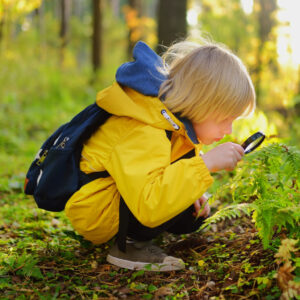I Wonder…
By Robin Bush, ISR Communications
What is curiosity? The Cambridge Dictionary says it is: “An eager wish to know or learn about something.” Spend time with a young child, and you will undoubtedly hear them repeatedly asking, “Why? But, as we age, our sense of curiosity tends to decrease, perhaps because our knowledge increases, but there are many reasons to find ways to re-ignite our sense of curiosity. That child-like sense of wonder is still within us.
What if a sense of wonder can help keep you young and increase longevity? What if the more curious you are, the better you will remember new information? And what if being curious about others will help build more meaningful relationships? If those are the likely benefits of curiosity, shouldn’t we be asking: “What can I do to cultivate curiosity in my life?” Try these ideas:
- Ask questions – inviting new ideas that may alter your perspective
- Listen and observe more and talk less
- Admit you don’t know the answers
- Be willing to learn from others
- Pick a topic you have never learned about before and immerse yourself in it
- Take time to let your mind and body wander on a walk in nature
When curiosity is allowed to flourish, new ideas emerge, alternative solutions arise to be considered, and people feel free to try new things. What if you set a goal for yourself to ask two or three questions of someone before you speak and share your ideas? What if you take time to ask yourself before speaking if you have pre-conceived ideas or presumptions that might narrow your thinking? What if you spent more time with people who believe differently than you do to gain a broader perspective of the world? What if you begin enthusiastically welcoming the learning journey and stop focusing on the destination?
Some people’s curiosity is motivated by how uncomfortable they feel when they don’t know the answer. Others find it in their endless awe of the natural world and are continually driven to learn more. Others want to understand how other people think and prioritize that over their own ideas. And still others enjoy the thrill of novel experiences and want more and more of those, not less. Regardless of why and how we cultivate curiosity, it has become accepted that curious people are happier, more empathetic, and have deeper connections with others – all good reasons to work toward engaging in a more curious lifestyle.
You might try telling someone else what you were curious about today. It might be something tiny that caught your interest, or perhaps you found yourself at the far end of the curiosity spectrum, immersed in an adrenaline rush when you imagined what might be around the next corner or what a new experience might feel like.
Can you set yourself on a path of curiosity? Start simply. Just go for a walk. Look around you. Nature provides an abundance of opportunities to ask, “Why? I wonder…” Re-igniting curiosity will nourish healthy, fulfilling, happy, confident living that will enrich your days, regardless of age.
“Those who dwell, as scientists or laymen, among the beauties and mysteries of the earth are never alone or weary of life. Whatever the vexations or concerns of their personal lives, their thoughts can find paths that lead to inner contentment and to renewed excitement in living. Those who contemplate the beauty of the earth find reserves of strength that will endure as long as life lasts.” – Rachel Carson. “The Sense of Wonder”
References:
“The Sense of Wonder” by Rachel Carson
The science of curiosity: why we keep asking “why” – Ness Labs
Curiosity: Why It Matters, Why We Lose It And How To Get It Back (forbes.com)
The Five Dimensions of Curiosity (hbr.org)
Curiosity: Our Superpower for Just About Everything | Psychology Today
Six Surprising Benefits of Curiosity (berkeley.edu)
Cultivating a Sense of Wonder by Opening Up to Curiosity | Sixty and Me
How Curiosity Can Supercharge Your Life After 60 | Sixty and Me

